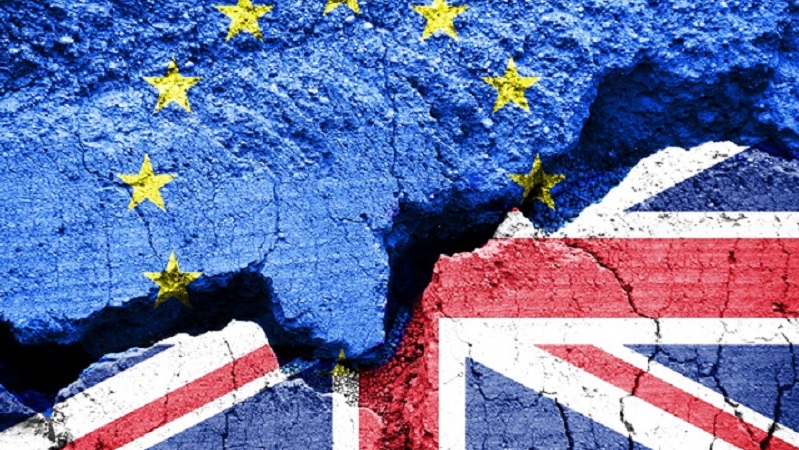The week ahead will be largely dominated by market data which will give an indication of how the economic health of the UK, Europe and China is stacking up, says Psigma head of investment strategy Rory McPherson.
On these shores, UK Q4 GDP and January inflation figures are set to be published and this week also marks the start of the earnings season for the big UK banks with RBS delivering results on Friday.
But for McPherson, this week looks set to see attention shift away from the micro and back to the macro; in particular some key data out of the US and China.
He notes the Chinese market is opening for the first time in a week after closing for its new year celebrations and will be releasing trade and inflation data.
Investors will also be keeping a close eye on further European earnings, which have underwhelmed so far, especially with Italy having just entered recession and Germany having avoided it, he says.
Elsewhere, the US earnings season rumbles on with about 60 S&P companies set to report this week, including Cisco and Coca-Cola. However, McPherson says European companies may well take more focus, given the weakness we’ve already seen in the data here, particularly from German and Spanish companies, with Michelin, Heineken, Credit Suisse and Nestle also publishing figures.
Monday 11 February
Brexit secretary to meet with Barnier
Psigma’s McPherson noted Brexit secretary Stephen Barclay is due to meet EU chief Brexit negotiator Michel Barnier on Monday to see if there’s any leeway on negotiating a new Irish backstop.
Reports have stated Barnier will likely reiterate that the EU is not prepared to re-open the Brexit deal, but is ready to rework the political declaration that accompanies it.
Tensions are high after European Council president Donald Tusk controversially said on 6 February there was a “special place in hell” for those who backed Brexit without a plan.
His comments were met with scorn from UK politicians. Andrea Leadsom, leader of the Commons, said Tusk should apologise for his “spiteful” comment while DUP Brexit spokesman Sammy Wilson described Tusk as a “devilish Euro maniac”.
Tuesday 12 February
UK Q4 GDP and December Manufacturing and Industrial Production data
Analysts from the Share Centre believe these sets of data will almost certainly be influenced by Brexit. Expectations are that all the uncertainty and withholding of investment spending because of Brexit has left the Q4 growth rate at half of that seen during Q3 and the year-on-year figure will moderate to 1.4%.
“The year-on-year figures for industrial and manufacturing figures are also expected to reflect lower activity, but, as with have seen with some other economic indicators, manufacturing production for December is actually expected to rise as companies stock up inventories to insure against the most undesired outcome,” they said.
Wednesday 13 February
UK January inflation rate
Inflation for the first month of the year is due on Wednesday and is expected to follow its downward trajectory, according to the Share Centre. In December, CPI dropped to 2.1% and analysts believe January’s figure could fall slightly further to hit 2% – the year-on-year target of the Bank of England’s MPC, which was last hit back in early 2017.
Share Centre analysts believe it’s likely that the fall off in oil prices since the summer will continue to have a downward impact on the transport sector. “Price caps on energy bills should also have a limiting impact on prices rises, this and the political uncertainty will almost certainly keep policy makers on hold with rate rises,” they said.
US inflation and retail sales due
After being delayed due to the government shutdown, Psigma’s McPherson believes these two sets of data will be interesting given the pick-up we’ve seen in US manufacturing of late and the booming jobs data.
“These numbers being stable is key to ensuring the Fed stays ‘patient’, which, of course, is key for markets,” he said.
He noted US data has been really good with the jobs market being “super strong”. This, he added, shows a big turnaround in an economy that was struggling. “It is less on company earnings and more on macro.”
Thursday 14 February
Astrazeneca Q4 2018 earnings release
According to analysts at the Share Centre, following a decent set of results from its pharma peer GSK, investors may expect reasonably good numbers from long-term Neil Woodford favourite Astrazeneca when it reports on Thursday.
“Judging by the first three quarters, Astra should see a good set of results with new drugs coming out of R&D and sales to the emerging markets doing very well,” they said. “Key blockbuster drugs are under pressure but recent good news surround drug approvals and new drugs result in investors to make an encouraging outlook for 2019.”
Ashmore interim results
Elsewhere, emerging markets specialist Ashmore Group is reporting its interim results for 2018/19.
Last month, the asset manager reported its assets under management grew $300m (£233m) during Q4 2018 as net inflows offset the impact of weaker global markets. Net inflows of $500m (£389m) came primarily from equities, corporate debt, multi asset and overlay/liquidity themes. Negative performance delivered a $200m (£155m) hit to AUM, specifically in alternatives and external debt.
Q4 German GDP
The market can expect a “flash” Q4 German GDP report on Thursday. McPherson said this, alongside the flash euro area Q4 GDP print, will be watched keenly given the abject decline in European data of late; not least the EC downgrades to euro area growth forecasts on 7 February.
China trade and inflation data
China posts these figures on Thursday and Friday, alongside the money supply and aggregate financing data. These data points, along with the path of Chinese markets, which have been shut all week due to new year celebrations, will be another marker in the debate raging over a China slowdown/how much it is stimulating debate, said McPherson.
Friday 15 February
RBS kicks off the full earnings season for UK banks
According to the Share Centre, RBS’s share price has regained some upward momentum this year after a poor 2018. Investors will be hoping for better news on revenues and impairments over the final quarter, it said.
Other areas of interest will be the group’s outlook, especially relating to Brexit, future dividend policy and any further news on buying back shares from the government, which still has a 62.4% holding.
Richard Hunter, head of markets at Interactive Investor, said share price performance of the UK banks has been mixed over the last quarter, but over the last year the moves are the same – a downward trajectory.
He said the pace of interest rate rises – traditionally a positive – which has failed to materialise at the pace previously envisaged, as well as Brexit and the cost of the regulatory burden, have hit banks hard.
“That being said, a number of the key metrics over recent reporting quarters have been impressive, giving some comfort that if nothing else, the banks are perceived to be in a much stronger and more stable state than in the midst of the financial crisis of a decade ago,” he added.







